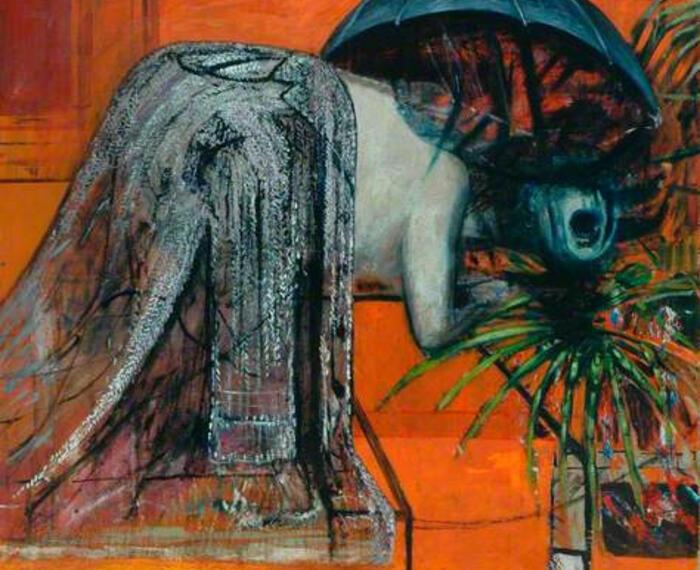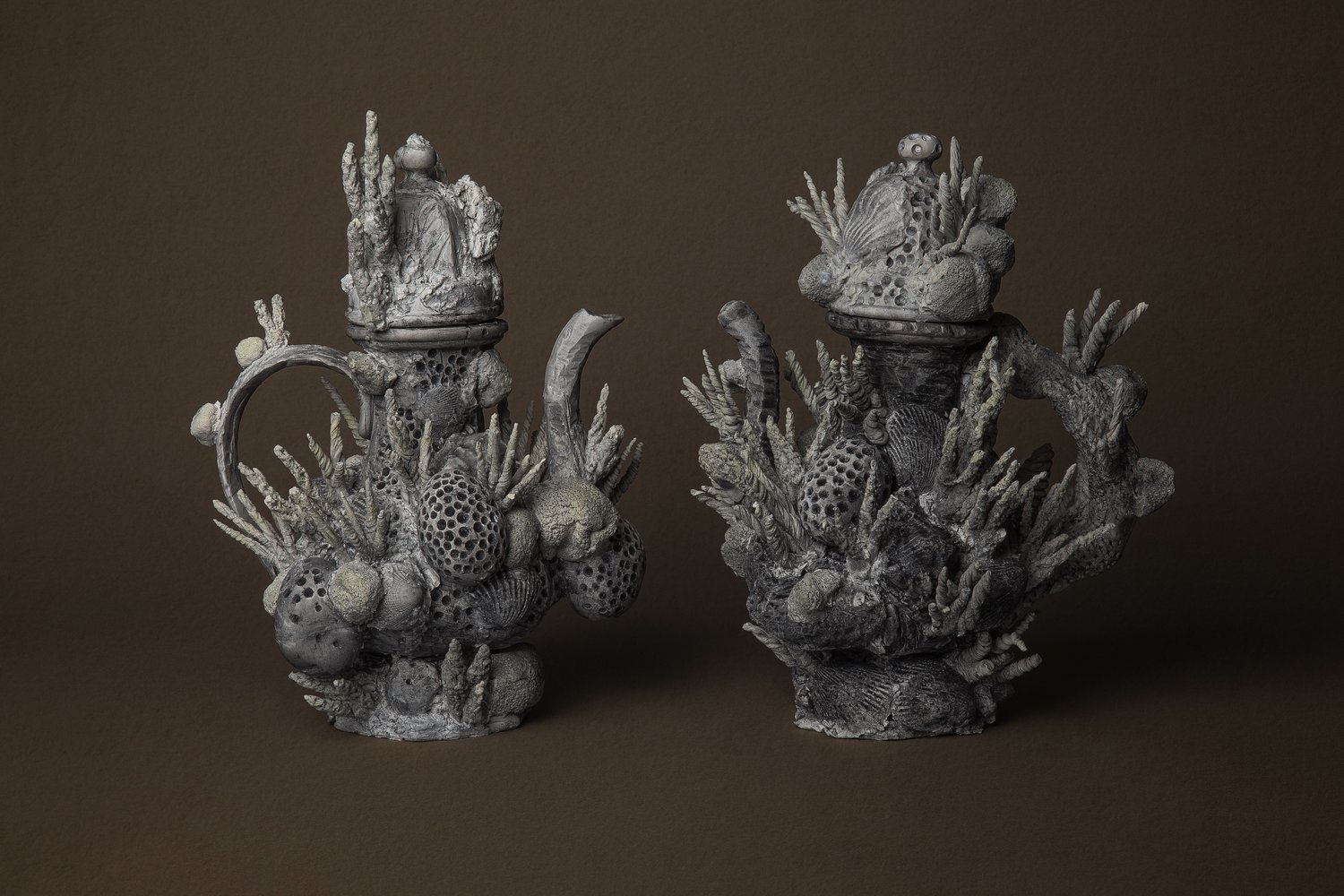Haitian artist Morel Doucet is based in Miami, Florida. His local environment informs his practice, where he investigates and critiques the realities of climate-gentrification, migration and displacement among the Black diaspora communities. Doucet conveys these realities as a multidisciplinary artist working with ceramics, print and illustration. Black Death – Crown of Thorns (2019) comprises two Rococo porcelain coffee pots from the series White Noise: When Raindrop Whispers & Moonlight Screams in Silence. The porcelain itself is fragile, a metaphor for the vulnerability of the African American and Caribbean communities that are most affected, yet often have no input into the conversations around environmental activism.
As with the other works in this series, Doucet imitates the textures of local flora and fauna. Each vessel appears to be a representation of an interaction, emotion or state that gives way to larger debates around identity, meaning and value. Black Death – Crown of Thorns is engulfed in ecological and socio-economic meanings, from climate change to rising sea levels and the impact of development upon the African diaspora in Miami. Coral, sea sponges and shells symbolise the local biodiversity in Miami that is at risk of ecological erosion and may cease to exist in the near future. In his work, Doucet challenges racial inequalities and hierarchies of power by questioning the dominant voice and face of environmental activism.
The Box, Plymouth acquired work by Morel Doucet because of the many connections between his practice and the location of Plymouth, a port city, and the museum’s collection. Much of the collection has a maritime theme and there is a large collection of porcelain shell wares. The Box wishes to explore the long history of porcelain manufacture, the narratives of migration and identity internationally as there is a large collection of domestic works from the Plymouth Porcelain Factory made in the 18th century.


